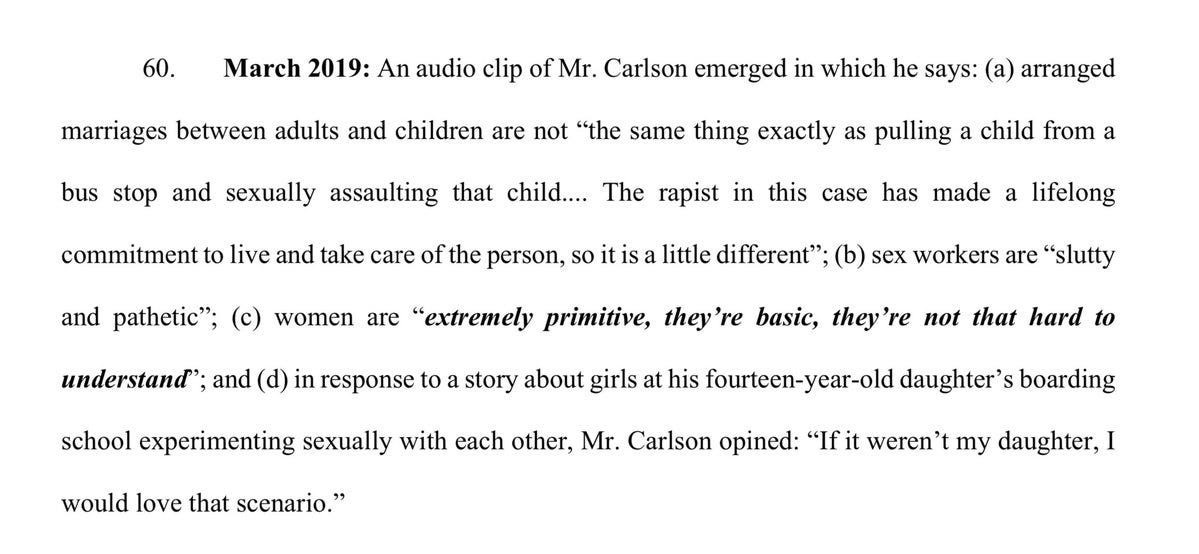Part 1
Today a federal judge in New York seated a jury to hear E. Jean Carroll’s defamation case against Donald Trump. The lawyers made opening statements. The jury consists of nine people: six men and three women.
Unlike the prosecution in Manhattan, the investigations that are still ongoing in Fulton County, Georgia, and before a federal grand jury in Washington, D.C., this is a civil case. But it’s an unusual one, with high stakes and also some confusing procedural twists. We’ll undoubtedly get into those as the week progresses, but tonight, I want to focus on the stakes.
This case is what has been dubbed Carroll II. It’s the second of two lawsuits brought by Carroll. The first case, Carroll I, is a defamation suit based on Trump’s derogatory comments about Carroll made while he was the sitting president. That case was on hold while the D.C. courts determined whether Trump was acting within the scope of his official duties when he made those comments. Although the court recently ruled, concluding the issue was one that a jury should decide, which presumably frees the case for a future trial, those allegations aren’t at stake this week.
This week’s trial involves a second incident of defamation, in 2022 in a
Truth Social post, where Trump called Carroll’s allegation that he had raped her “a Hoax and a lie” and said she wasn’t his type. There is also a charge of battery, based on the rape itself, which Carroll says occurred in the mid-1990s. Normally a charge of that nature would be barred by the statute of limitations this far down the road. But a recently adopted law in New York allows adult survivors of sexual abuse a grace period to sue their alleged attacker now. Carroll filed suit the day the law passed.
That makes this, in a sense, a criminal case dressed up in civil claims. The burden of proof is lower; Carroll need only convince the jury that Trump committed a battery on her by a preponderance of the evidence. If this were a criminal rape trial, it would have to be proved beyond a reasonable doubt.
Under New York law, assault is a criminal charge involving the intent to cause injury to another. It can range from a simple misdemeanor to a serious felony charge like assault with an intent to kill or assault with a deadly weapon. If there is a conviction in an assault case, the defendant goes to prison. In New York, battery is a civil tort (an act that injures or harms another person). A plaintiff who files a lawsuit like Carroll’s is seeking monetary damages.
Even though Carroll’s battery charge is a civil one, she will have to convince the jury that Trump more likely than not raped her in a Manhattan dressing room. And that will have repercussions if it happens. The expectation is that two other witnesses who were assaulted by Trump will testify in support of Carroll’s case. Until now, there has been talk of Trump’s pattern of this conduct, buttressed by his own remarks, like the
Access Hollywood tape where he talked about grabbing women by the p**** and that he could do that because he was a star. But no court proceeding has ever resulted in a verdict against Trump for assaulting a woman. If Carroll wins this case, and her evidence is quite strong—she told two friends about the attack contemporaneously but didn’t go to the police out of fear Trump could ruin her, something that was sadly borne out by his behavior almost three decades later—the country will again be placed in an unprecedented situation by the former president.
It’s possible that people will accept the verdict. The country will be in a frightening place. The leading candidate for the presidency in a major party will have been adjudged by a jury to be a rapist. Perhaps it will affect his political future, as it should. It is equally possible that it will not, given the GOP’s stunning reversal on issues of morality they used to characterize as their core family values. But the notion that a former president and a current candidate attacked a woman in a department store, lied about it, and savagely defamed her character over it would be a low-water mark in an era full of them.
Alternatively, as has so often been the case, a verdict in Carroll’s favor could be rejected as fake news. Trump has never been shy about damaging the public’s confidence in our legal system when it serves his own ends. There’s no reason to believe he would start now; he doesn’t even plan to be in the courtroom this week. Trump might fulfill his own prophecy that he could shoot a man on 5th Avenue without losing any support by losing a civil case over whether he raped a woman and remaining in place as the leading contender for the Republican nomination.
Somewhere on Earth One, Hillary Clinton is happily playing with her grandbabies as she nears the end of her second term in office. Women have not been reduced to second-class citizenship in 2023 America.
But instead, here we are in post-Trump America, where warning signs are flashing everywhere for anyone who cares to pay attention. And the prospect of the country finally being forced to face what has long been sidestepped, hard proof that the former president didn’t just talk about it, but actually assaulted a woman, will be of major significance no matter how the public reacts.
E. Jean Carroll and Abby Grossberg

joycevance.substack.com


